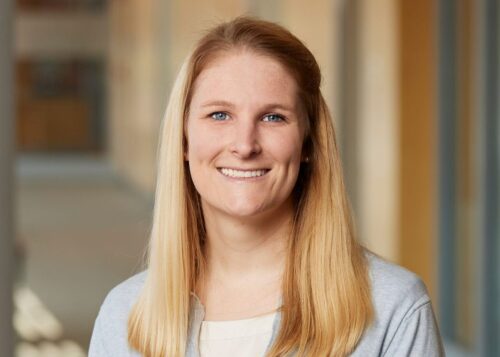Integrating Culturally Competent Mental Health Care Leads to Better Diabetes Outcomes
October 12, 2023
By Katie Dillon, By Sean Hagan

Getty Images
A new initiative by Boston Medical Center's Health Equity Accelerator shows promise in reducing A1C among patients of color living with diabetes.
A diagnosis of any chronic illness can be a challenge for anyone’s life. With chronic disease comes care management and maintenance and new mental and physical health challenges to navigate. Then, factors like racial or cultural identity, economic hardships, gender, and sexuality all intersect with the burden of disease management. Chief among these chronic conditions is diabetes, which affects more than 11.3% of the U.S. population — and disproportionately affects Black and Hispanic Americans and 12.1% and 11.8%, respectively, compared to 7.4% of white Americans.
Given this, Boston Medical Center’s Health Equity Accelerator has made diabetes care management a critical priority as it enters its third year.
Among the Accelerator’s priorities in diabetes care are ensuring that care is culturally competent and integrating behavioral health care into diabetes care management. These priorities are critical, especially because evidence suggests that alleviating diabetes distress leads to more positive health outcomes. And it’s been well-documented that when patients have their mental health needs met and feel seen by their healthcare team, they are more likely to engage in care and play an active role in their own care management.
While digging into how diabetes affects communities of color, the Accelerator team noticed that Latinx and Hispanic patients found it harder to manage their diabetes. A dimension of this was that common diabetes management advice is to integrate food that is less prominent in Latin and Hispanic cultures, like kale or cauliflower. The second dimension was that financial stress and burden disproportionately affected Latinx and Hispanic patients. Having noticed all that, the Accelerator launched a new program: a population-based program focused on improving diabetes outcomes by targeting diabetes-related distress and depression through individual therapy and a psychoeducational group therapy. The group therapy teaches movement and food education, and it provides support for patients struggling with managing their diabetes.
To better understand the ways in which BMC is innovating to meet patients where they are and improve health outcomes for patients of color — especially Latinx and Hispanic populations — HealthCity spoke with Cara Fuchs, PhD, and Vikki Salinas, LICSW. As the director of Integrated Behavioral Health, Fuchs works to bring mental health care to the diabetes program with the Accelerator. Salinas is a program manager in Integrated Behavioral Health and oversees the implementation of the group therapy for patients who struggle to manage their diabetes.
HealthCity: What emotional concerns do you commonly see among people when they’re first diagnosed with diabetes?
Cara H Fuchs, PhD: One of the factors that’s measured in diabetes distress is how a patient feels in relation to their medical provider about their diabetes. Very well-meaning healthcare providers want the best for their patients, but they can inadvertently cause patients to feel worse about what they’re doing or not doing.
A patient that I had been seeing for many years, who was Puerto Rican, felt like she was being told that she couldn’t eat rice anymore. And she felt like that was not realistic at all for her based on her culture and the kinds of food she knew how to make. What felt more feasible was thinking about portion control. But her dietary changes were being expressed to her as “all or nothing” instead of working together to figure out how to focus on moderation. This is an example of how miscommunication can lead to not being forthright because of fear of being judged.
Vikki Salinas, LICSW: Sometimes patients will feel like it’s a dramatic lifestyle change, especially for their diet. Patients suddenly feel like they have to change everything. Looking at it from that perspective can be really overwhelming and challenging, to the point where you don’t want to do it.
Having patients understand it’s not just one thing they need to change, it’s multiple pieces that fall into what their diabetes care looks like — that can be a big challenge.
HC: How do you work with diabetes patients who feel that way? What kind of strategies do you come up with together?
CF: We’re trying to validate the challenges associated with diabetes and how much goes into its management. Sometimes this is outside of a patient’s control. We also want to show our understanding that patients might not be able to change every aspect of their life, but that together we can focus on small but meaningful changes.
We really want to focus on acceptance of the condition itself. Patients often do not engage in recommendations by their provider because it’s hard to accept diabetes as a lifelong chronic condition. This sometimes leads to avoiding recommendations. More often, I think it’s difficulty accessing what is being recommended and/or not feeling like the recommendations resonate with their lifestyle or their cultural norms.
VS: The psychoeducational group has been crucial for a lot of our patients, so I’m glad we have that. Patients all look out for each other. If one of them is not at the group, they’ll check in. I think that’s an important aspect, not just in diabetes treatment, but in any chronic illness: having somebody that you can connect with. For example, patients talk about making a recipe book or bringing in food for the group. We were also able to get a small grant to provide Fitbits to the patients and incorporate that into their treatment goals.
We also have a nurse practitioner, Charlene Julien, present at our meetings. She is checking in on the medical side while we check on the behavioral health side. Being able to have both those needs met is crucial to group functioning.
HC: What have you learned throughout this project? Is there something that surprised you or something that you’ve learned?
VS: When I started doing research for the program, I didn’t correlate diabetes with mood. I think a lot of the symptoms are pretty similar: the low energy, the low mood, the low tolerance for irritability, and getting anxious. These things aren’t just housed within the behavioral health perspective. They can also mean, have you checked your blood sugar today? Have you eaten today? Have you taken your medication today?
Growing up, my grandmother had diabetes, and she would always attribute her health to her diet. I remember her changing her diet to prepare for upcoming appointments. She’d get really good results at her doctor’s appointments, and then fall back to old habits afterward. She thought she “had to be good” to make sure her appointment would go well.
My grandmother was also really active initially but stopped as her diabetes progressed. So it’s interesting to share this with patients when we do our group. We are always telling patients in the group setting to do what they can. If they can’t do the suggested exercise or don’t want to eat a certain kind of food, they can try another type of movement or try other food.
CF: It’s still preliminary, but among patients who have completed a course of individual therapy focused on alleviating mood symptoms and improving diabetes self-management, 90% of them have had both a clinically significant reduction in their A1C and a reduction in their depressive symptoms. While our target centers on emotional distress, we’ve also made an impact on diabetes outcomes. I think this speaks to the crucial role mental health plays in managing diabetes.
While our target centers on emotional distress, we’ve also made an impact on diabetes outcomes.
Most of the patients that we’re engaging have never sought out mental health treatment before. For some of them it’s never been recommended, or they have not felt ready or interested, or there were other barriers to engaging in care. I can’t say enough about utilizing registry data to identify at-risk populations and having a skilled clinician reach out to the patient and attempt to engage them in care. We’ve had such a positive response from the patients we’ve reached — they’re so appreciative of this proactive outreach.


